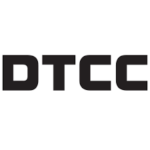BCBS/IOSCO moved the deadlines for the last two phases of the uncleared margin rules for non-centrally cleared derivatives.
![]() The COVID-19 pandemic has caused another major industry postponement: the Basel Committee on Banking Supervision (BCBS) and the International Organization of Securities Commissions (IOSCO) have moved the deadlines ahead by one year for the last two phases of the implementation of the uncleared margin rules (UMR) for non-centrally cleared derivatives.
The COVID-19 pandemic has caused another major industry postponement: the Basel Committee on Banking Supervision (BCBS) and the International Organization of Securities Commissions (IOSCO) have moved the deadlines ahead by one year for the last two phases of the implementation of the uncleared margin rules (UMR) for non-centrally cleared derivatives.
“In light of the significant challenges posed by Covid-19, including the displacement of staff and the need for firms to focus resources on managing risks associated with current market volatility, the Committee and IOSCO have agreed to extend the deadline for completing the final two implementation phases of the margin requirements for non-centrally cleared derivatives, by one year,” according to a BCBS/IOSCO announcement released on April 3.
 “This extension will provide additional operational capacity for firms to respond to the immediate impact of Covid-19 and at the same time, facilitate covered entities to act diligently to comply with the requirements by the revised deadline,” according to BCBS/IOSCO officials.
“This extension will provide additional operational capacity for firms to respond to the immediate impact of Covid-19 and at the same time, facilitate covered entities to act diligently to comply with the requirements by the revised deadline,” according to BCBS/IOSCO officials.
“With this extension, the final implementation phase will take place on 1 September 2022, at which point covered entities with an aggregate average notional amount (AANA) of non-centrally cleared derivatives greater than €8 billion [$8,651,632,017.57] will be subject to the requirements,” according to BCBS and IOSCO officials. This group’s previous deadline was September 1, 2021.
“As an intermediate step, from 1 September 2021 covered entities with an AANA of non-centrally cleared derivatives greater than €50 billion [$54,065,063,588.90] will be subject to the requirements,” according to the regulators. Previously, this group had a deadline of Sept. 1, 2020
This is not the first major adjustment to the UMR deadlines.
In July 2019, BCBS and IOSCO officials changed the deadline structure for Phase 5 of the initial margin (IM) implementation of the UMR requirements. At that time, regulators essentially split off a segment of Phase 5 — those firms with gross AANAs of non-centrally cleared derivatives ranging from $8 billion to $49.9 billion — and gave that group a one-year deadline extension to September 1, 2021.
At the same time, the regulators kept the IM go-live deadline of Sept. 1, 2020 for firms that have gross AANAs of non-centrally cleared derivatives that range from $50 billion to $749.9 billion. Previously, the AANA threshold for Phase 5 extended down to $8 billion.
The Basel Committee sets standards for the regulation of banks, serves as a forum for banking supervisory matters, and reports to the Group of Central Bank Governors and Heads of Supervision. IOSCO is an international policy forum for securities regulators.
The decision was met with swift approval by major industry organizations.
Post-trade infrastructure and services provider DTCC supports the postponements.
 In a media alert, John Straley, executive director, institutional trade processing for the DTCC, endorsed the new deadlines.
In a media alert, John Straley, executive director, institutional trade processing for the DTCC, endorsed the new deadlines.
“DTCC supports the decision by the Basel Committee on Banking Supervision (BCBS) and International Organization of Securities Commissions (IOSCO) to delay the implementation of the final two phases of the uncleared margin rules (UMR) for non-centrally cleared derivatives by one year as a result of the COVID-19 pandemic,” Straley says.
“COVID-19 is an industry-wide challenge and the additional time provided by the UMR delay will be welcomed by industry participants as they focus resources on managing risks associated with current market volatility in conjunction with future regulatory requirements,” Straley adds.
Officials at the International Swaps and Derivatives Association (ISDA) have recently begun a public push for UMR deadline extensions via a letter to regulators signed by major industry groups.
In addition, Scott O’Malia, CEO for ISDA, made his appeal via a derivatiViews posting on March 26.
“The coronavirus pandemic has forced firms to focus on critical priorities, like ensuring their continued operation and managing market risk in a period of severe volatility,” O’Malia says via his commentary.

Scott O’Malia
“This work is even more challenging as firms have implemented remote working and business continuity plans. For these reasons, we think it’s vital that global regulators agree a delay to the next phases of initial margin (IM) implementation until the situation and impact of coronavirus becomes clearer — a position we have set out in a letter to regulators signed by 21 trade associations,” O’Malia says.
O’Malia also notes that the Phase 5 implementation deadline of September 2020 may have seemed “a long way away, but much of the preparation needs to be actioned now. For example, custodial agreements need to be put in place and documentation needs to be signed with counterparties — both of which are proving challenging due to resource issues and working from home, which is making it difficult to get documents physically signed.”
In addition, securities trading firms are focused on business continuity and disaster recovery, which leaves “no spare capacity to deploy and test infrastructure,” or run AANA calculations and implement margin calculation systems, O’Malia says.
“Without a delay, it will almost certainly mean smaller entities will be shut out of the derivatives market, denying them the ability to manage their risk at precisely the time they need it most,” O’Malia says.
The full text of O’Malia’s remarks can be found here https://bit.ly/39MdsiI
The full text of the BCBS and IOSCO decision can be found here https://bit.ly/2XdzCrS
Need a Reprint?